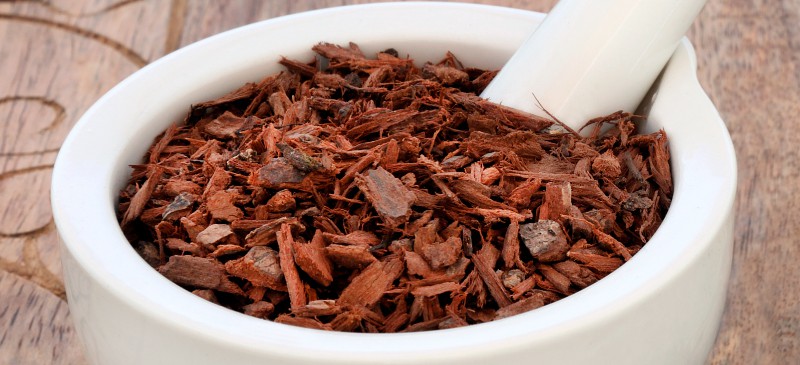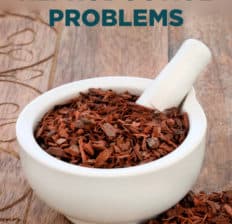This Dr. Axe content is medically reviewed or fact checked to ensure factually accurate information.
With strict editorial sourcing guidelines, we only link to academic research institutions, reputable media sites and, when research is available, medically peer-reviewed studies. Note that the numbers in parentheses (1, 2, etc.) are clickable links to these studies.
The information in our articles is NOT intended to replace a one-on-one relationship with a qualified health care professional and is not intended as medical advice.
This article is based on scientific evidence, written by experts and fact checked by our trained editorial staff. Note that the numbers in parentheses (1, 2, etc.) are clickable links to medically peer-reviewed studies.
Our team includes licensed nutritionists and dietitians, certified health education specialists, as well as certified strength and conditioning specialists, personal trainers and corrective exercise specialists. Our team aims to be not only thorough with its research, but also objective and unbiased.
The information in our articles is NOT intended to replace a one-on-one relationship with a qualified health care professional and is not intended as medical advice.
Pygeum Benefits for Reproductive Health (+ How to Use It)
October 23, 2021

The use of various plants and herbs (known as phytotherapy and herbalism) for the treatment of reproductive problems, including prostate-related issues, has been growing steadily. The most common use of extracts made from the African tree known as pygeum is supporting prostate health and helping to manage symptoms of benign prostatic hyperplasia (or BPH, which involves having an enlarged prostate).
It may also be capable of helping to improve sexual function as well as certain bladder, kidney and urinary problems.
What Is Pygeum?
Pygeum (Pygeum africanum) is an evergreen tree native to parts of Africa that is used to make herbal remedies.
Today, the pygeym tree, which is a member of the Rosaceae plant family, grows in forests throughout Africa, Central and South American mountains, the Gulf of Guinea, and Madagascar and the Comoros Islands. Because of its potential to treat widespread health problems, the tree has actually become a vulnerable species due to how often being it’s being harvested.
Pygeum also goes by several other names, including African cherry, African plum, African prune and red stinkwood. Brand names usually list the active ingredient as Prunus africana or Pygeum africanum.
As an herbal concoction, pygeum has been traditionally used for its ability to fight:
- inflammation
- an enlarged prostate
- urinary and bladder problems
- kidney disease
- fever
- malaria
- digestive issues, including stomach pains
The bark of the tree is most often made into extracts or powders that are rich in beneficial compounds. The bark itself can be red, brown, gray or red, depending on the exact species and the age of the tree, and it has a signature scent due to its unique composition of chemicals and volatile oils.
Benefits
What is pygeum good for? Here’s what research tells us about pygeum benefits:
1. High in Antioxidants and Anti-Inflammatory Compounds
Based on available studies, pygeum is known to have antioxidant, antiproliferative, anti-inflammatory, antibacterial and antiestrogenic effects. This means that it as the ability to help prevent free radical damage, oxidative stress, infections, pain caused by inflammation and potentially even some types of cancer.
The bark from the pygeum tree in particular is high in protective compounds, including:
- Triterpenes, such as ursolic, oleanolic and crataegolic acids
- Fatty acids
- Ferulic acid esters
- N-tetracosanol and n-docosanol
- Phytosterols, such as beta-sitosterol, beta-sitosterone and campesterol
- Tannins
2. Can Help Treat and BPH and Prostatitis
Extracts made with pygeym have been used by urologists, especially in Africa, the U.S. and Europe, for the treatment of enlarged prostate in men with BPH. Powdered pygeum bark has also long been utilized in traditional systems of medicine that originated in African tribes to treat a various prostate, urinary and bladder problems.
This plant extract has been shown in several studies to help improve urinary and bladder control symptoms associated with prostatitis (inflammation of the prostate) — such as symptoms of nocturnal frequency, difficulty in initiating urination and false sensations of bladder fullness compared with placebo.
These effects seem to be due to the plant’s ability to prevent binding of dihydrotestosterone in the prostate gland. Other proposed mechanisms include inactivation of androgen receptors, inhibition of cellular growth factors, anti-inflammatory activity and phytoestrogenic actions that can all reduce prostate gland size.
Additionally, it seems to help improve bladder elasticity and blocks accumulation of cholesterol in the prostate due to the effects of fat-soluble components.
Does pygeum prevent prostate cancer?
Some animal studies have found that P. africana extract can help inhibit prostatic fibroblast proliferation, which can contribute to prostate cancer development. It seems capable of stopping the growth of both androgen insensitive and androgen sensitive cells, inducing apoptosis, and down-regulating estrogen receptor expression in cells, which may all reduce the risk for prostate cancer.
Findings from certain studies indicate that beta-sitosterol may be responsible for pygeum’s effects against prostatic adenomas, since beta-sitosterol can positively affect membrane structures and growth of tumors.
In one study conducted on mice, the mice fed P. africana extract for five months experienced a significant reduction in the incidence of prostate cancer compared with mice fed casein protein.
3. May Help Improve Sexual Function
Does pygeum increase seminal fluid? One study found that pygeum extract helped improve seminal fluid composition, and some research suggests it can support healthy sexual function, especially in men.
Pygeum’s anti-inflammatory properties seem to give it the ability to exert protective effects in the reproductive organs against free radical damage, including the prostate and bladder.
Research has shown that this plant contains ferulic acid ester, fatty acids and other components that may be responsible for pygeum’s endocrine system activity.
How to Use
The usual recommended dosage of pygeum is 100 milligrams a day in six- to eight-week cycles, but dosages vary depending on the condition being treated.
To help treat benign prostatic hyperplasia, dosages can range from 25 to 200 mg/day of P. africana extract that is typically standardized to 14% total sterols.
In taken in capsule form, some studies have administered dosages of 50 mg of P. africana extract twice daily for 60 days.
High-dose P. africana extract (200 mg/day) may also be administered in some cases to help improve urinary symptoms and sexual functions.
Pygeum is also sometimes combined with other anti-inflammatory herbs to help treat prostate and urinary problems. For example, it’s been used in combination with urtica dioica and saw palmetto in some studies. These combinations are often given in lower doses but seem to be effective for treating symptoms such as problems with urine flow, residual urine and nycturia with men with BPH.
In men with BPH, other herbal formulations that may be used include a combination of pygeum with pumpkin seed oil, lycopene and willow herb.
Risks and Side Effects
What are the possible side effects of pygeum? Overall, pygeum seems safe for most adults to use and is considered non-toxic.
In a small number of people, side effects including digestive issues, gastrointestinal irritation (such as nausea, constipation, diarrhea, stomach pain) and headaches have been reported.
This product should be avoided during pregnancy and when nursing due to a lack of information regarding its safety.
Pygeum has no known severe interactions with any drugs, however it’s best to get your doctor’s opinion before beginning to take any new herbal supplements if you take daily medications.
Conclusion
- Pygeum africanum, or pygeum, is a tree native to Africa that is used in urology practices for the treatment of lower urinary tract symptoms and side effects related to an enlarged prostate (BHP).
- Pygeum benefits can potentially include helping fight inflammation, oxidative stress, free radical damage, swelling of the prostate, prostate cancer risk and sexual dysfunction.
- It’s been shown in studies to reduce symptoms of nocturnal frequency, difficulty in initiating urination and false sensations of bladder fullness.
- Most often it’s used in extract form and sometimes taken as powder or capsules. It’s generally well-tolerated and safe when used in dosages between 25 to 200 mg/day, sometimes in combination with other anti-inflammatory herbs.










